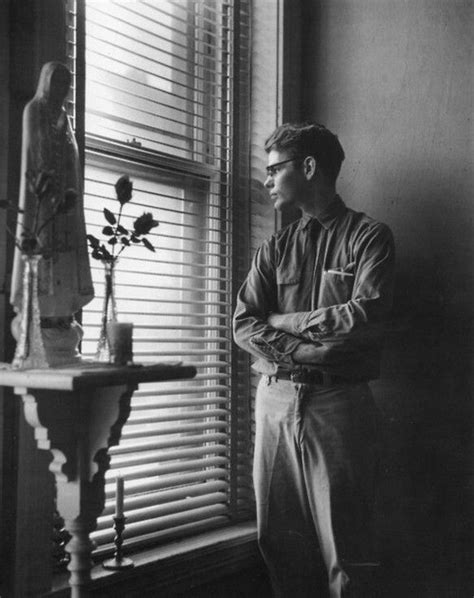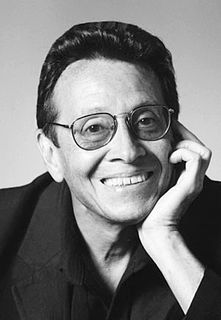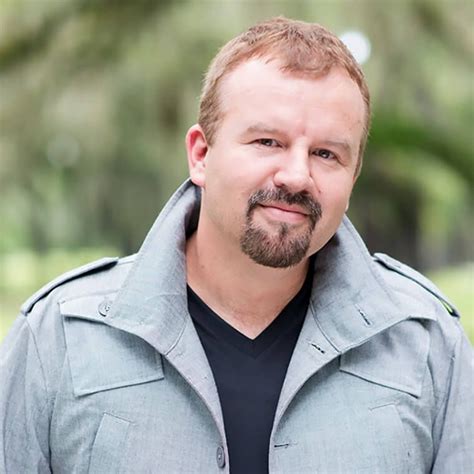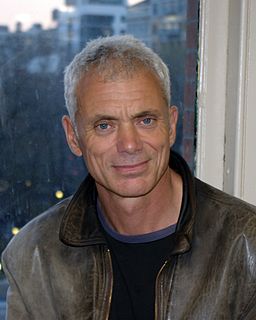A Quote by Jerome Liebling
These days it seems that physical truth can easily be rearranged, rethought, or re-created outright. Any image can be made pristine, all the warts can be removed. But returning to the source of a thing - the real source - means the photographer has to watch, dig, listen for voices, sniff the smells, and have many doubts. My life in photography has been lived as a skeptic.
Related Quotes
Any photographer worth his/her salt - that is, any photographer of professional caliber, in control of the craft, regardless of imagistic bent - can make virtually anything look good. Which means, of course, that she or he can make virtually anything look bad - or look just about any way at all. After all, that is the real work of photography: making things look, deciding how a thing is to appear in the image.
Empty your mind of all thoughts. Let your heart be at peace. Watch the turmoil of beings, but contemplate their return. Each separate being in the universe returns to the common source. Returning to the source is serenity. If you don't realize the source, you stumble in confusion and sorrow. When you realize where you come from, you naturally become tolerant, disinterested, amused, kindhearted as a grandmother, dignified as a king. Immersed in the wonder of the Tao, you can deal with whatever life brings you, and when death comes, you are ready.
To us, the difference between the #? photographer as an individual eye and the photographer as an objective recorder seems fundamental, the difference often regarded, mistakenly, as separating photography as art from #? photography as document. But both are logical extensions of what photography means: note-taking on, potentially, everything in the world, from every possible angle.
Modern society seems to be a celebration of all the things that lead away from the Truth, make Truth hard to live for, and discourage people from even believing that it exists.
And to think that all this springs from a civilization that claims to adore life, but actually starves it of any real meaning; that endlessly speaks of making people “happy”, but in fact blocks their way to the source of real joy.
If the DHS insists, as bureaucracies are apt to do, that open-source must be certified via a sanctioned, formal process, it will interfere with the informal process of open-source itself. It seems to me the DHS is trying to turn an open-source development project into a Microsoft (or IBM or Oracle) software development project. And we know what that means: more, not fewer, errors -- security and otherwise.
The fact is that in England so many of our politicians are career politicians - they've always been politicians since they left their education. And in the old days of course politicians used to be fish mongers or doctors or whatever. They'd lived life. These days, power seems to go to the hands of people that that's all they've done. And I'm not sure that's a good thing, because it does remove them from the realities of life.
If an open source product gets good enough, we'll simply take it. So the great thing about open source is nobody owns it - a company like Oracle is free to take it for nothing, include it in our products and charge for support, and that's what we'll do. So it is not disruptive at all - you have to find places to add value. Once open source gets good enough, competing with it would be insane. We don't have to fight open source, we have to exploit open source.
The Open Source theorem says that if you give away source code, innovation will occur. Certainly, Unix was done this way... However, the corollary states that the innovation will occur elsewhere. No matter how many people you hire. So the only way to get close to the state of the art is to give the people who are going to be doing the innovative things the means to do it. That's why we had built-in source code with Unix. Open source is tapping the energy that's out there.




































